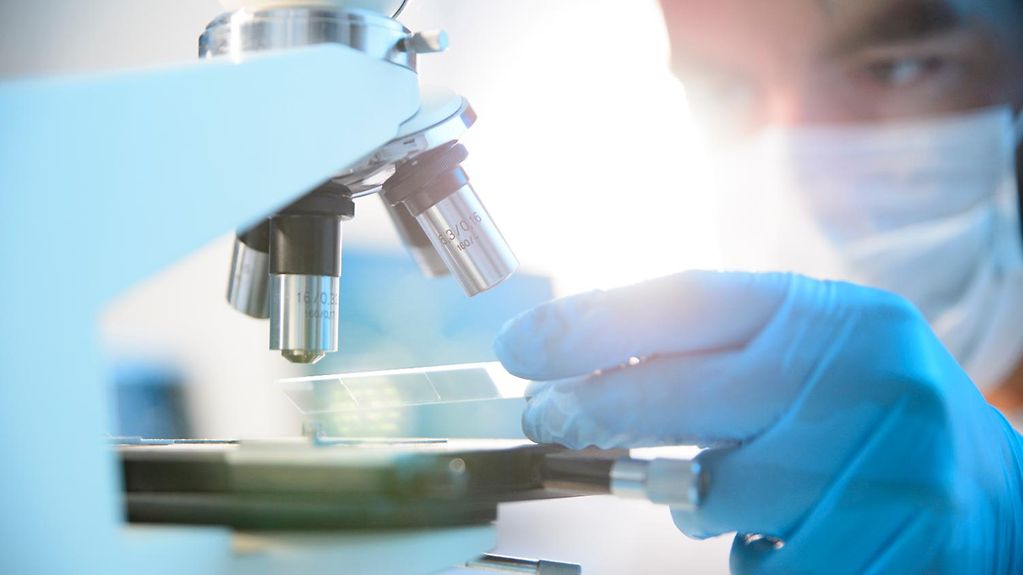Informal video conference of EU research ministers
At an informal video conference, Federal Research Minister Anja Karliczek has updated her counterparts on the status of planned legislation in the field of research and innovation, including the EU’s Horizon Europe research and innovation programme that is to be launched next year. Here is an overview.
2 min reading time

The EU intends to continue networking and promoting research
Photo: Getty Images
Why do we have European research and innovation programmes?
The framework needs to be in place to enable research scientists in Europe to cooperate effectively. Like the Single Market, which regulates the free movement of goods and people, an internal market for knowledge is thus being created – the European Research Area (ERA). It is not only the mobility of research scientists that is important, but also knowledge sharing among research facilities, private businesses and citizens, as well as reciprocal consultation on research topics.
How long have we had EU research programmes?
EU research programmes go back to 1984. Since then, the timescale and financial scope of the programmes have expanded greatly. Horizon 2020, the framework programme for the period 2014 to 2020, was the research and innovation programme with the highest funding to date.
What is the budget of the new programme?
Horizon Europe is again to be the world’s single largest research and innovation programme, and will surpass even Horizon 2020 in scope. According to the agreement on the multiannual financial framework and the recovery fund reached by the European Parliament and the EU member states in the European Council on 10 November, a total of 80.9 billion euros will be available to Horizon Europe. The overall package, including the multiannual financial framework, the Next Generation EU recovery programme and the new rule-of-law mechanism still needs to be finally adopted, however. Germany, which holds the Presidency of the Council of the European Union, is currently engaged in intensive talks with all stakeholders to this end.
What is new about Horizon Europe?
Horizon Europe will offer a great deal of continuity, as it follows on from its predecessor Horizon 2020. One new feature is the institutionalisation of the European Innovation Council (EIC). Its goal is to support breakthrough innovation to create markets of the future. Horizon Europe will also introduce a strategic planning process and missions for the first time.
What is the strategic planning process?
The planning process aims to identify the most important political and strategic priorities for the first few years of Horizon Europe. The new process revolves around the involvement of European Commission services, representatives of member states, Members of the European Parliament, interested actors in the field of research and innovation and citizens.
The goal is to align strategic priorities in the field of research and innovation with the EU’s political priorities. This relates to environmental and digital transformation, for instance, as well as achieving the United Nations Sustainable Development Goals (SDGs).
What are the missions designed to achieve?
Horizon Europe introduces missions for the first time. These are EU-wide research and innovation instruments that strive to achieve bold and ambitious goals to address the social challenges of our time in Europe.
Five mission areas have initially been identified:
- Adaptation to climate change including societal transformation
- Cancer
- Healthy oceans, seas, coastal and inland waters
- Climate-neutral and smart cities
- Soil health and food.